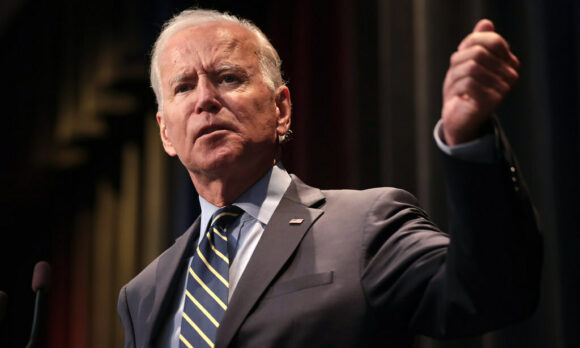January 11, 2024
Sharper: Democracy
Analysis from CNAS experts on the most critical challenges for U.S. foreign policy.
While 2024 marks the beginning of a presidential election year in the United States, it also marks a year of elections across the globe. These elections are taking place amid a rise in authoritarianism, with implications for democratic order at home and abroad. CNAS experts are sharpening the conversation about the state of democracy, election security, and tools to counter illiberal threats. Continue reading this edition of Sharper to explore their ideas and recommendations.
Features
Taiwan’s 2024 Presidential Election
On Saturday, January 13th, Taiwan will hold its 2024 presidential election. In anticipation of the event, Jacob Stokes, CNAS Senior Fellow for the Indo-Pacific Security Program, provides insights and analysis on the current dynamics of the electoral race, potential results, and broader ramifications for security in the region.
Democracy under Threat: How the Personalization of Political Parties Undermines Democracy
A report from authors Andrea Kendall-Taylor, Carisa Nietsche, and Nicholas Lokker, along with Joseph Wright, Jia Li, Erica Frantz, and Nikolai Rice, shows that the personalization of political parties is fueling democracy’s decline. These personalist parties, the report explains, lack the incentive and capacity to meaningfully check a leader’s efforts to expand executive power, facilitating the steady degradation of democracy we see today.
CNAS Responds: Taiwan’s 2024 Presidential Election
On Saturday, January 13th, Taiwan will hold its 2024 presidential election. In anticipation of the event, Jacob Stokes, CNAS Senior Fellow for the Indo-Pacific Security Progra...
Democracy under Threat
In 1998, Viktor Orbán was elected the prime minister of Hungary in free and fair elections. He was supported by the Fidesz party—a movement he founded in 1988 that became a po...
Digital Decentralization and Its Effects on Democracy
“Despite the governance challenges associated with Web3, it also presents opportunities for democracies to enhance multilateral cooperation,” wrote Sam Howell in a CNAS report. “Democracies have ingrained structural and systemic advantages that could streamline Web3 implementation, as well as existing alliance structures that could be used to foster collaboration and develop transparent Web3 standards. To harness these advantages, however, democracies must confront the trend toward data sovereignty and localization, which could limit information sharing, complicate the adoption of regulation regimes, and contribute to Web3 fragmentation.”
Brussels Sprouts Presents a Finnish Presidential Debate
Heading into the January 2024 Finnish presidential elections, the spotlight remains on foreign policy, an area where the Finnish head of state wields considerable influence. Following Russia’s invasion of Ukraine in 2022, Helsinki broke from its decades-long policy of formal military non-alignment by applying for and receiving membership in NATO. Outgoing president Niinistö had a crucial role in executing this monumental shift, helping set Finland down a new path, but considerable questions and issues remain. On this special episode of Brussels Sprouts, Andrea Kendall-Taylor and Jim Townsend moderate a debate between Finland’s leading presidential candidates, Dr. Mika Aaltola, Pekka Haavisto, and Alex Stubb, on the future of Finnish foreign policy.
Digital Decentralization and Its Effects on Democracy
According to blockchain technologists, web decentralization would fundamentally alter business, societies, and the balance of digital power by reorganizing the internet, using...
Brussels Sprouts Presents a Finnish Presidential Debate
Heading into the January 2024 Finnish presidential elections, the spotlight remains on foreign policy, an area where the Finnish head of state wields considerable influence. A...
Commentaries
Election Interference Demands a Collective Defense
“As campaign season heats up ahead of the 2024 U.S. election, so does the potential for foreign political interference,” warns Richard Fontaine for Foreign Affairs. “Russia and China both pair a willingness to do harm with sophisticated cyber capabilities. Iran has its own track record of meddling in American politics, and it, too, may be tempted to interfere. And the United States is not the only target. In recent years, Australia, Canada, France, and Germany have all been subject to attempts at foreign interference. For the foes of democracy, distorting electoral politics now seems to be a low-cost, high-reward way to support their favored candidates, harm their perceived enemies, or simply deepen polarization and sow internal distrust—often with the added benefit of plausible deniability.”
How Cybersecurity Saved U.S. Democracy
“A range of activities designed to protect the American election infrastructure from foreign malign activity ended up providing a bulwark against threatening domestic efforts to undermine and overturn the lawful election result,” argues Carrie Cordero for The Center for International Relations and Sustainable Development. “The U.S. experience in 2020 suggests that cybersecurity itself can play a critical role in protecting not only election infrastructure as a technical matter, but also providing a technical basis to counter illiberal forces as a mechanism to protect the democratic process of conducting a fair election. Cybersecurity itself just may have saved U.S. democracy from careening of the rails, continued sustained efforts to continue to harden election infrastructure cybersecurity and create a cadre of trusted officials, will likely be needed again.”
Election Interference Demands a Collective Defense
The stakes have grown too high and the threats too pervasive to leave every democracy to its own devices....
How Cybersecurity Saved U.S. Democracy
In 2020, the threats compounded as compared to 2016....
The Future of European Integration Hinges on Poland
“In the run-up to Poland’s election, many have highlighted the stakes for the future of liberal democracy in Poland,” writes Nicholas Lokker for Foreign Policy. “Yet the negative consequences of another PiS-led government would extend far beyond Poland itself, threatening the continuation of the European integration process that has delivered peace and prosperity to hundreds of millions of people over the past seven decades. A sea change in Warsaw is necessary to preserve this fragile success—and could see Poland take on its rightful role as a true EU leader.”
From Shock and Awe to Stability and Flaws: Iraq’s Post-Invasion Journey
“Twenty years after the US-led invasion of Iraq, the country is now run by its eighth government, which took power in October 2022,” observes Hamzeh Hadad for the European Council on Foreign Relations. “Despite continuous fears of implosion, the political order and the elite in Iraq have proven resilient in the face of terrorism, civil war, threats of secession, and mass protests. Europeans should now acknowledge that the informal consociational system, the party politics, the patronage networks, and the competing paramilitaries are going to be long-term features of Iraqi governance.”
The Future of European Integration Hinges on Poland
If Poland left the camp of the EU’s spoilers and renewed its adherence to the bloc’s legal order, it would have knock-on effects far beyond the EU-Poland relationship....
From shock and awe to stability and flaws: Iraq’s post-invasion journey
Twenty years after the US-led invasion of Iraq, the country is now run by its eighth government, which took power in October 2022. Despite continuous fears of implosion, the p...
In the News
Featuring commentary and analysis from CNAS experts Richard Fontaine, Lisa Curtis, Carisa Nietsche, Dr. Go Myong-Hyun, and Hamzeh Hadad.
Biden Takes His Battle for Democracy Case by Case
Richard Fontaine, chief executive of Center for a New American Security, said America’s approach to promoting democracy abroad “has always been a model of inconsistency.” Mr. ...
What do assassination plots reveal about India’s geopolitical rise?
A US criminal indictment recently revealed an alleged plot connected to the Indian government to carry out multiple assassinations in North America. The indictment accuses Ind...
Biden’s Democracy Summit 2.0: Ukraine War Spurs Globalized Format
“This summit takes place against the backdrop of Russia’s invasion of Ukraine and Ukrainians’ ongoing demonstration of democracy’s resilience,” says Carisa Nietsche, an associ...
NK Likely to Continue Provocations for Greater Leverage Before Elections
“Rather than having a direct influence on the general elections, the North appears to be seeking conflicts within South Korea and heightened tensions through the provocations ...
20 Years After US Invasion, Iraq Far From 'Liberal Democracy'
"Building democracy takes time and building a democracy doesn't create a utopia overnight," said Hamzeh Haddad, a visiting fellow at the European Council on Foreign Relations....
About the Sharper Series
The CNAS Sharper series features curated analysis and commentary from CNAS experts on the most critical challenges in U.S. foreign policy. From the future of America's relationship with China to the state of U.S. sanctions policy and more, each collection draws on the reports, interviews, and other commentaries produced by experts across the Center to explore how America can strengthen its competitive edge.
Subscribe
Sign up to receive the latest analysis from the CNAS expert community on the most important issues facing America's national security.
More from CNAS
-
Trump 2.0 and Security in Asia
Donald Trump is bringing his "America First" agenda back to U.S. foreign policy. What could this mean for Japan and the partners in Asia? Akira Igata, an Adjunct Senior Fellow...
By Akira Igata
-
Syria: What Happened and What Comes Next
After more than a decade of civil war involving major interventions from foreign powers, over the past week a rebel alliance incredibly rapidly gained control of city after ci...
By Richard Fontaine
-
The Future of Russia and China in Central Asia
Despite the many proclamations that Russian and Chinese interests would collide in Central Asia, Moscow and Beijing continue to work together in service of their shared object...
By Andrea Kendall-Taylor & Jim Townsend
-
Russia and China in Central Asia
Executive Summary Despite the many proclamations that Russian and Chinese interests would collide in Central Asia, Moscow and Beijing continue to work together in service of t...
By Andrea Kendall-Taylor, Lisa Curtis, Kate Johnston & Nathaniel Schochet

















